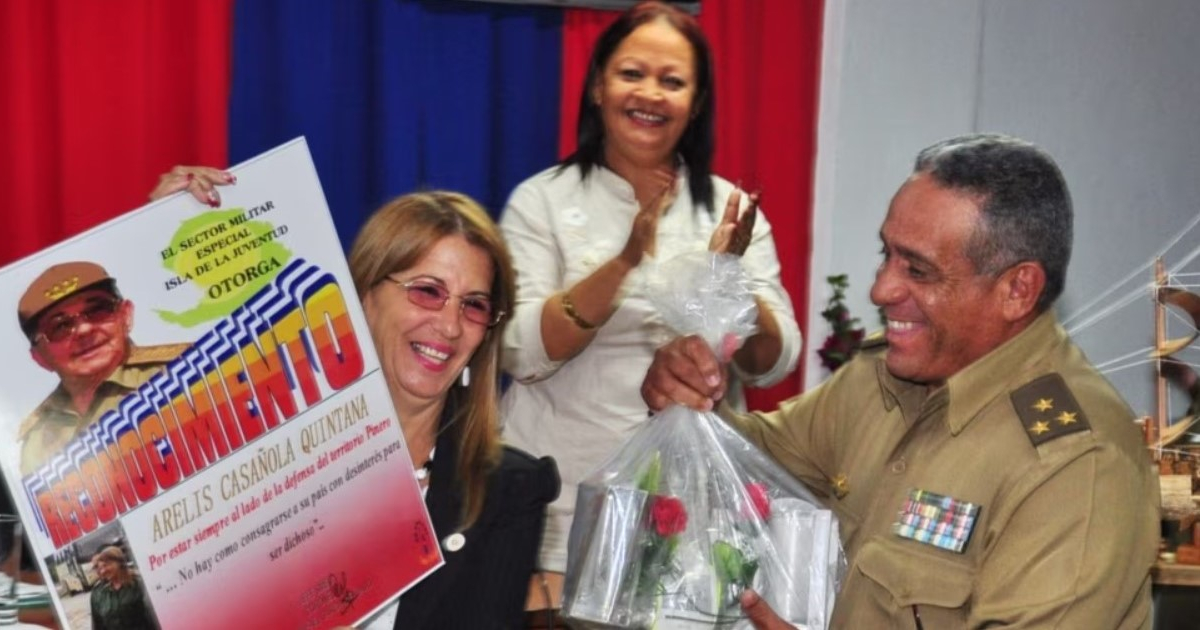The former president of the government of Isla de la Juventud has sought asylum in the United States through the CBPOne application, citing a "fear of socialism." Arelys Casañola Quintana, who was the first woman president of the Municipal Assembly of People's Power in the Special Municipality and a deputy to the National Assembly, is reportedly now in Kentucky, home to a large community of Cubans.
An article by Martí Noticias reports that the former leader, who was relieved of her position in 2018 "at her own request" to spend "an extended period of time abroad," entered the United States on April 20 via the southern border. Casañola, aged 56, had better luck than her successor, Liván Fuentes Álvarez, whose flight permit was revoked by the U.S. government this week just as he was about to board a charter flight to the country.
According to a family member, the former official traveled to Mexico with her son, Fidel Alejandro Espinosa Casañola, and waited for months for their CBPOne appointment to request asylum at the border. The source confirmed that she does not wish to speak to the press about her communist past.
Upon entering the United States, authorities issued her a Form I-94, considered an Entry Record by the Department of Homeland Security, which will allow her to obtain a parole and later apply for permanent residency under the Cuban Adjustment Act.
Arelys led the Municipal Assembly of People's Power in Isla de la Juventud from 2012 to 2018, during which she was also a deputy to the Parliament. Prior to that, she held significant positions in the Federation of Cuban Women, the Union of Young Communists, and state enterprises. She was born in Colón, Matanzas, and holds a degree in Education.
Her departure from the government in 2018 was marked by high-profile recognitions. The local newspaper Victoria reported that she received several accolades, including a diploma signed by Raúl Castro and a picture frame featuring photos of her with Díaz-Canel and Ramiro Valdés.
Both she and her son have deleted their Facebook accounts. However, a Twitter profile under the ex-communist leader's name remains active until May 2023, featuring numerous tweets with propaganda about the regime, including congratulations to the MININT and the police on their anniversaries.
Democracy activist Ramón Salazar described it as "shameful" that someone "with such credentials" was allowed to enter the United States. "We want to bring this matter to the attention of U.S. immigration authorities to inform them that this woman, during her tenure as president of the People's Power, ordered and participated in acts of repudiation against dissidents and is also a member of the Communist Party of Cuba," he told Martí Noticias. "We request that her case be reviewed and that she be returned to Cuban territory. She enjoyed the benefits of the dictatorship and now also wants to benefit from the United States of America," he emphasized.
Questions About Arelys Casañola Quintana's Asylum Case
Here are some frequently asked questions about Arelys Casañola Quintana's asylum case in the United States and her background.
Who is Arelys Casañola Quintana?
Arelys Casañola Quintana is the former president of the Municipal Assembly of People's Power in Isla de la Juventud, Cuba. She is also a former deputy to the National Assembly and has held significant roles in various state organizations.
Why did Arelys Casañola Quintana seek asylum in the United States?
Arelys Casañola Quintana sought asylum in the United States citing a "fear of socialism." She applied through the CBPOne application and entered the U.S. via the southern border.
What is Form I-94?
Form I-94 is an Entry Record issued by the U.S. Department of Homeland Security. It allows an individual to obtain a parole and later apply for permanent residency under the Cuban Adjustment Act.
What has been the reaction to her asylum request?
Democracy activist Ramón Salazar and others have criticized her asylum request, highlighting her involvement in acts of repudiation against dissidents and her membership in the Communist Party of Cuba.
